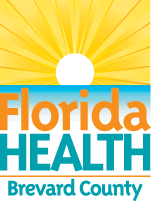It's a New Day in Public Health.
The Florida Department of Health works to protect, promote, and improve the health of all people in Florida through integrated state, county, and community efforts.
Florida Department of Health in Brevard County Issues Precautionary Swim Advisory
August 01, 2020

August 1, 2020
Florida Department of Health in Brevard County Issues Precautionary Swim Advisory
-Avoid contact with contaminated water-
Contact:
Environmental Health
(321) 633-2100 or (321) 720-2575
Viera, FL— Due to the potential effects on water quality related to Hurricane Isaias, the Florida Department of Health in Brevard County (DOH-Brevard) has issued a county wide precautionary swim advisory for all public beaches. At this time, swimming is not recommended.
Tests will be conducted, when possible, to determine the water quality at public beach locations. Until test results are available, you should assume that water contact may pose an increased risk of disease or illness, particularly for susceptible individuals.
Additionally, residents should avoid contact with floodwaters which come from an overflow of any water body from rivers, lakes, or oceans. Floodwater may contain fecal matter from sewage systems, agricultural and industrial waste, and septic tanks. Floodwaters can also mask debris, downed power lines, and other hazards.
DOH recommends the following precautions after hurricanes.
- Follow basic hygiene during this emergency period. Always wash your hands with soap and water which has either been boiled or disinfected before eating and after toilet use.
- Do not allow children to play in floodwater. They can be exposed to water contaminated with fecal matter.
- Do not allow children to play with toys that have been in floodwater until the toys have been disinfected. Use 1/4 cup of bleach in one gallon of water to disinfect toys and other items.
- If you have open cuts or sores exposed to the floodwater, keep them as clean as possible by washing them with soap and disinfected or boiled then cooled water. Apply antibiotic cream to reduce the risk of infection. If a wound or sore develops redness, swelling or drainage, see a physician.
- After helping in cleanup activities and after handling items contaminated by floodwater or sewage, wash hands with soap and water.
fore adding the bleach, run the water until it is clear for up to 10 minutes. If after a while the water does not clear up, wait until you have clear water before proceeding, as this means your well may still be affected by the flooding.
The latest testing on salt water beaches will be updated on DOH’s website https://www.floridahealth.gov/environmental-health/beach-water-quality/index.html. For fresh water beaches, contact the Environmental Health Section of the DOH-Brevard where the fresh water beach is located for information about fresh water beaches. A list of county health department websites can be found here: https://www.floridahealth.gov/programs-and-services/county-health-departments/find-acounty-health-department/index.html.
For further information, please contact your local county health department or visit www.floridahealth.gov or www.FloridaDisaster.org.
During severe weather and other emergencies, you can count on active alerts from the department's official social media accounts along with DOH-Brevard.
The department, nationally accredited by the Public Health Accreditation Board, works to protect, promote and improve the health of all people in Florida through integrated state, county and community efforts.
Follow us on Facebook, Instagram and Twitter at @HealthyFla. For more information about the Florida Department of Health please visit www.FloridaHealth.gov.



Connect with DOH